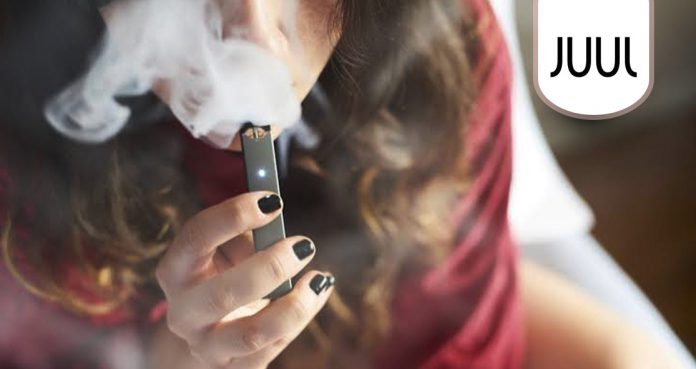According to a new report published Tuesday amid ongoing vaping epidemic, Jull executives were aware of the fact that young people were getting attracted to their flavored vaping products, but ignored it.
The report found that since the inception of Juul, there have been internal discussions and debates over concerns about the company’s products being potent and addictive.
A former manager of the company told Reuters the company’s executives knew that their products have been attracting young people since they started selling them in 2015.
In fact, a group of teenagers called company representatives to know whether they can buy more vaping products and refills containing liquid nicotine. The former manager said this led to internal inquiries that sparked serious discussions and debates.
The former manager said that Juul co-founder James Monsees argued for taking swift action to limit the sales of vaping products among youth. However, other executives, including Hoyoung Huh, argued that they should not be held responsible for youth nicotine addiction because the company did not intentionally advertise or sell their products to them.
The manager said, “Clearly, people internally had an issue with it. But a lot of people had no problem with 500 percent year-over-year growth.”
Juul told Reuters that the company did not intend to attract young customers. The company explained that Monsees “did not recall the internal discussions in 2015 over whether to take action to curb youth sales.”
The report also found that in April 2018, Juul announced a “comprehensive strategy” to curb youth sales after pressure from drug regulatory bodies and US senators.
The company took measures two days after the FDA announced a nationwide crackdown of sales of Jull products among youth.
When asked why Juul did not take an action sooner, the company said it took a couple of actions to curtail youth sales in 2017. The first one was raising the age bar to 21 for online purchases and the second starting a “retail monitoring program.”
The largest e-cig company told Reuters, “Juul reacted to the information that it had, and increased its youth prevention measures as more data came out over the years.”
In 2018, Jull Chief Administration Officer Ashley Gould told CNN, “We were completely surprised by the youth usage of the product.”
Dr. Neal Benowitz from the University of California-San Francisco told Reuters that he told Juul’s director of scientific affairs, Gal Cohen, that excessive use of vaping products among teens could wreak havoc.
Dr. Benowitz recalled telling Cohen, “Look, the one thing you have to do is make sure that this doesn’t get into the hands of young people. If it spreads among kids, this product could be dead.”
In September, President Trump announced a proposed ban on non-tobacco flavored e-cigarettes.
In October, Juul announced that it has stopped selling all its flavored products nationwide amid the ongoing vaping crisis. The U.S. Centers for Disease Control and Prevention said there have been 1,888 cases of serious lung injury related to vaping, with 37 confirmed deaths across 24 states as of October 29.






















